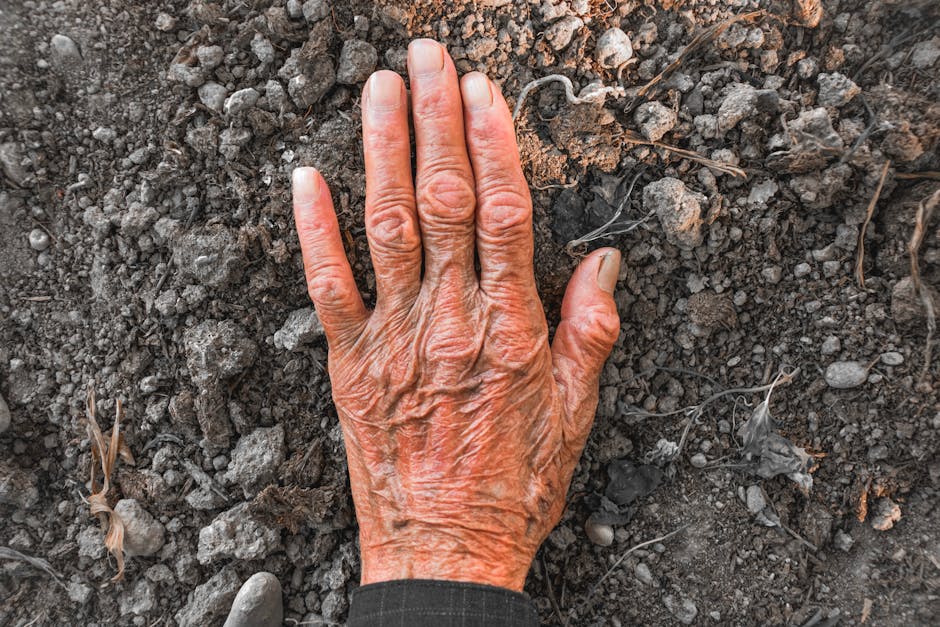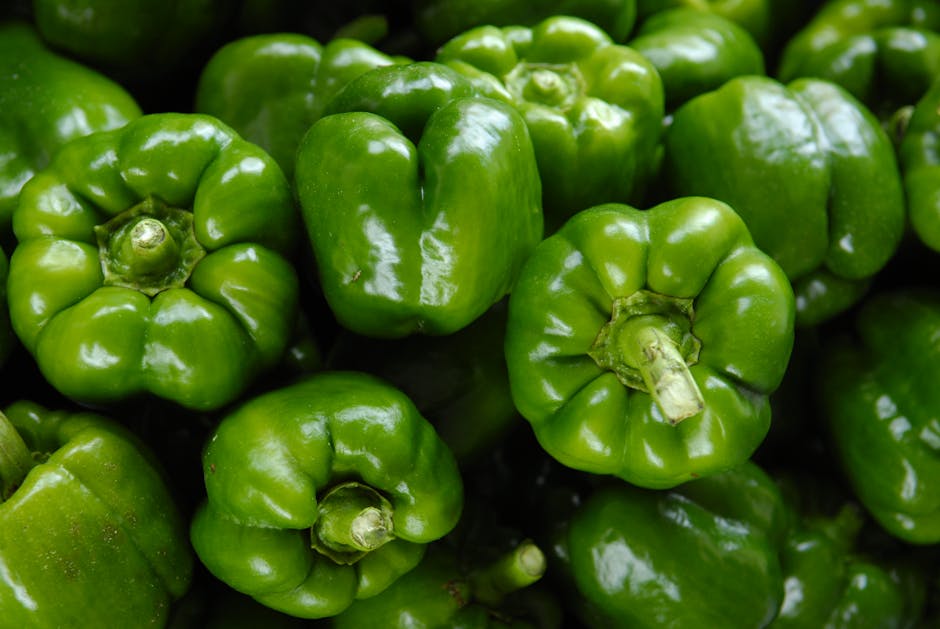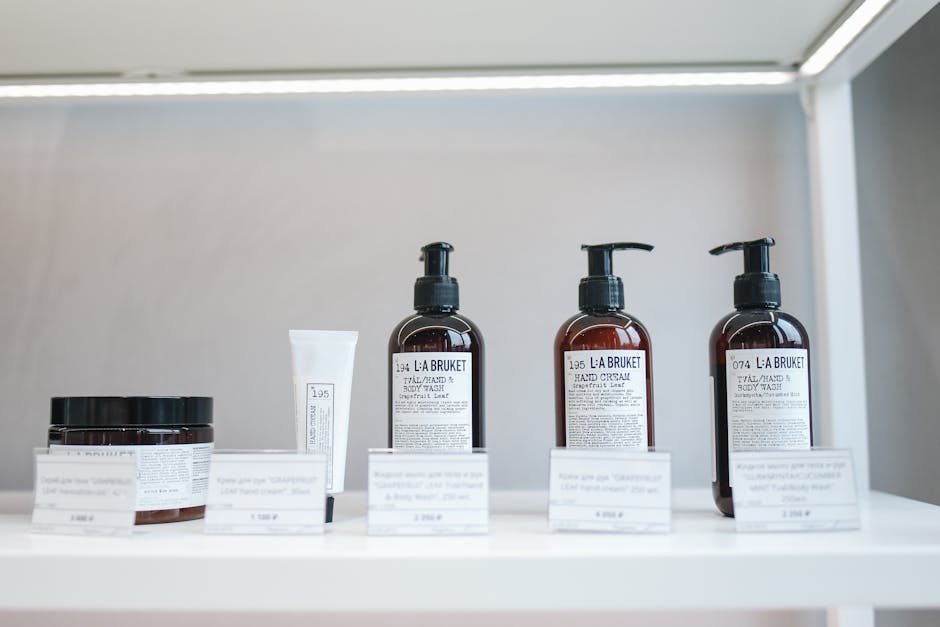From Farm to Face: Uncover the Benefits of Regenerative Skincare
In today’s bustling beauty landscape, where consumers are more informed than ever, understanding the connection between the skincare products we apply daily and the ways they're sourced can feel like peeling back the layers of a complex onion. Have you ever truly mused about where your skincare ingredients come from? The answer may surprise you: regenerative agriculture is not just a buzzword; it’s a movement reshaping the efficacy of skincare products while also promoting sustainability. This article dives deep into how these progressive farming practices enhance the quality of skincare ingredients, contributing significant benefits not only for your skin but also for our environment.
Understanding Regenerative Agriculture

Regenerative agriculture fundamentally differs from conventional farming by focusing on ecological health. It encompasses practices that restore soil health, enhance biodiversity, and revitalize ecosystems. While conventional farming often depletes soil nutrients, regenerative methods enrich the land by employing techniques like cover cropping, crop rotation, reduced tillage, and composting. This renewed focus on the soil leads to higher-quality crops, which, when used in skincare products, may yield potency unmatched by traditionally farmed ingredients.
A key takeaway is that healthy soil translates to more nourishing ingredients. For skin enthusiasts, this means ingredients packed with benefits, from enhanced hydration to better overall skin health. Brands that source their botanical ingredients from regenerative farms, such as Aveda and Dr. Bronner’s, are reaping the rewards of superior ingredient integrity.
The Connection Between Soil Quality and Skincare Efficacy

You might wonder how soil quality spells a difference in skincare formulations. Well, if you think about it, the skin absorbs what is applied to it. Just as organic fruit often tastes better, skincare ingredients from nutrient-rich soils tend to be more effective. For example, the antioxidant properties in rosehip oil sourced from regenerative plantations can promote skin healing more effectively due to its higher nutrient density.
Research published by the Rodale Institute indicates that regenerative agriculture can even produce crops with fewer pesticides, making them safer and healthier for our skin. This could pave the way for future skincare formulas that are not only effective but also free from harmful chemicals.
Spotlight on Brands Leading the Way

Regenerative agriculture is more than just a trend; it’s a paradigm shift that's influencing various skincare brands. Herbivore Botanicals, for instance, emphasizes organic and sustainably sourced ingredients. The brand’s focus on ethical sourcing ensures that its products are as much about skin health as they are about supporting the planet.
Then there’s True Botanicals, known for its commitment to regenerative farming. The brand works closely with farmers dedicated to enhancing soil health, all while developing formulations that target specific skin concerns. Their approach highlights how nurturing the environment translates to more effective skincare solutions.
For an in-depth look at how transparency in ingredient sourcing can improve your beauty routine, check out our previous post on the future of skincare innovations.
Sustainable Beauty: The Environmental Aspect

In addition to enhancing skincare efficacy, there’s a compelling environmental argument for supporting brands that utilize regenerative agriculture. The beauty industry grapples with sustainability challenges; however, regenerative practices can help minimize the industry's ecological footprint. By fostering biodiversity and improving soil health, these farming methods combat climate change and promote a healthier planet.
Brands that adhere to regenerative agriculture often focus on eco-friendly packaging, sustainable logistics, and ethical labor practices. A company like Kahina Giving Beauty** exemplifies this with its commitment to organic and sustainably sourced ingredients, as well as practices that empower farmers and ensure fair treatment.
This circular approach not only benefits your skin but ultimately contributes to a healthier ecosystem, showcasing that true beauty lies in sustainability.
Efficacy of Natural Ingredients Grown Through Regeneration

The benefits of skincare products derived from regenerative agriculture extend to their formulation. Many natural ingredients thrive in nutrient-rich soils, leading to formulations packed with vitamins, minerals, and antioxidants. For example, consider marula oil, known for its high fatty acid and antioxidant content. When sourced from regenerative farms, this oil may be more potent, offering superior hydration and anti-aging benefits.
Moreover, the synergistic relationships found in biodiverse farming systems can lead to enhanced potency in skincare ingredients. This holistic approach reinforces that when we support practices aimed at healing our planet, we also uplift our skin.
The Importance of Transparency and Sourcing Practices

For consumers, it’s crucial to know where your skincare ingredients originate. The buzz around transparency is increasing, and brands are compelled to provide clear insights into their sourcing practices. Checking labels for organic certifications, regenerative practice mentions, or partnerships with local farmers can guide consumers toward ethical choices.
Engaging in conversations about ingredient sourcing also strengthens our connection with beauty brands. Sharing stories and testimonials reinforces how supporting regenerative agriculture extends beyond personal skincare benefits. Think of it as a community effort to uplift our health and planet collectively.
For a deeper dive into the science behind natural ingredients in skincare, explore our article on why soil-based ingredients are revolutionizing skincare.
Personalizing Your Skincare Regimen with Eco-Friendly Practices

One insightful way to elevate your skincare routine is by focusing on eco-friendly and regenerative products. Selecting brands that uphold sustainability not only champions environmentally conscious practices but also provides an opportunity for skin that’s nourished at a cellular level.
Incorporating products like aloe vera face masks sourced from regenerative farms can add a rejuvenating touch to your skincare ritual. Aloe from healthy soil may provide higher levels of vitamins and nutrients, enriching your skin deeply.
Additionally, adopting a minimalist approach—using fewer, high-quality products—can further emphasize the benefits of ingredients derived from regenerative practices. This brings awareness to the efficacy of natural cosmetics without overwhelming your skin with various potentially irritating elements.
Regenerative Agriculture’s Role in the Future of Skincare

As the beauty industry continues to evolve, the role of regenerative agriculture will become increasingly vital. The demand for sustainable and ethically sourced products is expected to rise exponentially, pushing brands toward greener practices. These changes promise not only improvements in skincare efficacy but also a collective effort toward addressing environmental challenges.
Brands embracing regenerative practices are not merely adapting but are becoming pioneers of change. This shift not only captivates eco-conscious consumers but cultivates a beauty community aligned with broader sustainability goals.
To see how innovative technologies like AI are impacting skincare personalization and efficacy, don’t miss our exploration of AI and its transformative role in beauty.
The Bottom Line: Connect Your Beauty Choices to the Earth

Thinking deeply about where your skincare products originate connects beauty with farming practices that nurture our earth. The synthesis between regenerative agriculture and skincare formulations is where health, sustainability, and efficacy collide. By choosing products rooted in these practices, you’re not just investing in your beauty but also participating in a broader movement for environmental health—one that nourishes both skin and soil.
By turning your skincare routine into an act of environmental stewardship, you elevate your self-care practices to levels beyond the skin. With every selection, you champion a future rich in beauty and wellbeing for all.
Final Thoughts

In embracing regenerative agriculture, we forge an inspiring connection between what we put on our skin and how it impacts the environment. Skincare is not merely an aesthetic endeavor; it's a powerful tool for change. As consumers, let's advocate for and support brands that prioritize ecological health. By understanding the origins of our products and choosing wisely, we can make beauty a part of the solution, crafting an environment that thrives as much as our skin does.
Are you ready to redefine your beauty routine with fresh, eco-conscious choices? The journey from farm to face may just be the transformative experience you've been looking for.



